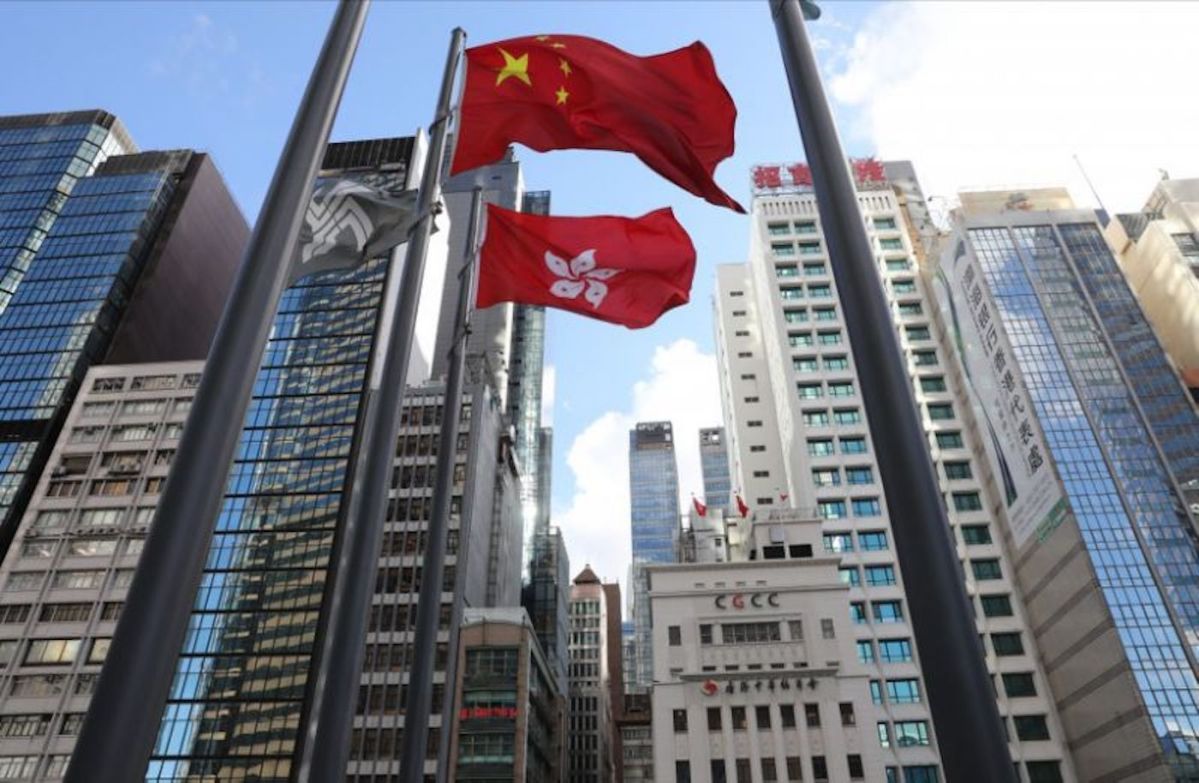[ad_1]
HONG KONG – Proposed changes to Hong Kong’s election system would help to resolve deep-rooted problems in the territory as new leaders will focus more on people’s livelihoods instead of the vested interests of large corporations, according to a pro-Beijing academic.
Chinese Vice Premier Han Zheng told more than 200 Hong Kong and Macau delegates from the Chinese People’s Political Consultative Conference (CPPCC) in a Beijing meeting on Saturday morning that Hong Kong should focus on resolving its long-term and deep-rooted problems now that the election system has been changed.
He said CPPCC members should provide more advice to the government about how Hong Kong could improve in different aspects including industrial structure, wealth distribution, housing and innovative technology.
Starry Lee Wai-king, a CPPCC member and chairwoman of the Democratic Alliance for the Betterment and Progress of Hong Kong (DAB), said during the meeting Han had urged CPPCC members to give advice to the government on how to effectively and practically resolve Hong Kong’s problems, particularly the housing shortage and economic malaise.
Proposed reforms to the structure of the Legislative Council and the Election Committee would ease tensions between the legislative and administrative bodies and also reduce the influence of large corporations, said Lau Siu-kai, vice-president of the Chinese Association of Hong Kong and Macau Studies, in a March 5 interview with the Global Times.
The article was republished by the People’s Daily on Sunday.
Conflict between the bodies
In the past, the chief executive was elected by people mostly from the middle and upper classes while voters for the LegCo mainly came from the middle and lower classes, Lau said. The situation resulted in a huge conflict between the legislative and administrative bodies, he said.
The inclusion of more pro-Beijing people, who mainly represent the lower class, into the Election Committee would dilute the influence of large corporations in the committee, Lau said.
That means Hong Kong and central governments would face less resistance from vested interest groups when they pushed forward economic reforms in the territory in the future, he said.
The number of Election Commission members who select the chief executive would increase to 1,500 from 1,200, several Hong Kong media reported last Friday. The 300 new members, mainly from pro-Beijing groups in Hong Kong, would form a new sector similar to the existing four.Â
Currently, these are the industrial, commercial and financial sector; the professions; labor, social services, religion and others; and the politicians.
It was the second time Han talked about Hong Kong’s deep-rooted problems. On May 23, 2020, Han told the CPPCC’s Hong Kong members in Beijing that there were a lot of deep-rooted issues in the special administrative region.
However, he added that Hong Kong should implement the national security law before it could begin to resolve the issues. On June 30, 2020, the national security law was implemented in Hong Kong.
During the anti-extradition protests in 2019, Beijing had blamed property developers for pushing up Hong Kong’s home prices and indirectly creating social conflicts in the city.
On September 12, 2019, a commentary in The People’s Daily said Hong Kong’s perennial housing woes were caused by “developers defending their vested interests†to stall state land plans or fight efforts to curb runaway property prices – and this had fanned people’s mistrust of the authorities.
The article said taking back land from private owners is a delicate “rebalancing act†between private property rights and public interest. Since then, major property developers have donated some of their agricultural sites to the government for public housing projects.
Last year, Hong Kong’s property prices remained roughly flat due to the Covid-19 pandemic. However, home prices have regained growth momentum this year as the epidemic situation in the city eases.
An index tracking the prices of private apartments in Hong Kong rose 0.13% to 380 in January from December, according to data compiled by the Rating and Valuation Department. The index had declined for three straight months before the rise.
General election
Lau also said he believed that the Election Committee, the functional constituency and the general election would have 30 seats each in the 90-seat LegCo after the electoral changes.
He said he understood that there was a suggestion that the Election Committee and the general election should have 40 and 20 seats, respectively, in the LegCo.
However, he said if the number of seats in the general election was significantly reduced from 35 to 20, the existing pro-Beijing political parties would receive less support from the grassroots. Currently, the DAB and the Hong Kong Federation of Trade Unions are the two largest pro-establishment groups in the LegCo.
Elsie Leung, the former Secretary for Justice of Hong Kong and former deputy director of the Basic Law Committee, said Sunday that the Election Committee and the general election should have 40 and 20 seats, respectively, in the LegCo. Leung said it was likely the LegCo elections would be postponed from September to December.
On Monday, Chief Executive Carrie Lam said in a media briefing that it was not the time to comment on whether LegCo elections would be postponed again. She added that logically the LegCo election should be held after the formation of the Election Committee.
Lo Kin-hei, chairman of the Democratic Party, said the pro-democracy camp would discuss whether they would join LegCo elections in the future, given that it would be very difficult for democrats to become election candidates.
[ad_2]
Source link










